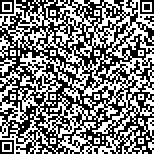| 摘要: |
| 浙江南麂岛海域是我国近岸贝类的重点养殖区,近年来一直遭受脂溶性贝类毒素(lipophilic shellfish toxins,LSTs)的污染,威胁着人类健康。为了建立有效的食品安全预警方法,本研究利用固相吸附毒素跟踪技术(solid phase adsorption toxin tracking,SPATT)在该海域进行了为期一年的野外监测和LSTs毒素分析。结果表明:7种LSTs毒素在SPATT(DIAION®HP20)中被检出,分别是大田软海绵酸(okadaic acid,OA)、鳍藻毒素-1(dinophysistoxin-1,DTX-1)、虾夷扇贝毒素(yessotoxin,YTX)及其衍生物homoYTX、扇贝毒素-2(pectenotoxin-2,PTX-2)及其衍生物7-epi-PTX2sa和环亚胺毒素(gymnodimine,GYM);有8种毒素在厚壳贻贝(Mytilus galloprovincialis)中被检出,分别是OA、DTX1、homoYTX、PTX2、7-epi-PTX2sa、GYM、原多甲藻酸贝类毒素-3(azaspiracid-3,AZA-3)和虾夷扇贝毒素衍生物45-OH-homoYTX。整体而言,SPATT(HP20)中吸附的毒素种类与贝肉中监测出的毒素种类大体上一致,且两者间OA、DTX1和PTX2的浓度在时间上具有较好的相关性,可见SPATT (HP20)对这些LSTs毒素具有较高的灵敏度,有望作为水体中LSTs毒素的预警监测材料。南麂岛海域LSTs分布特征明显,夏季最高,其次是春秋季,冬季最低,其中2014年夏季贝肉中OA毒素含量高达77.19ng/g贝肉,超出国家限量标准(45ng/g贝肉)比例达11.76%,为浙江南麂海域贻贝的食用安全带来隐患。 |
| 关键词: 固相吸附毒素跟踪技术(SPATT) 脂溶性贝类毒素(LSTs) 树脂(HP20) 南麂岛 |
| DOI:10.11693/hyhz20160100007 |
| 分类号: |
| 基金项目:浙江省公益技术研究农业项目,2013C32040号;国家自然科学基金项目,41306095号,41176086号,41276099号;教育部博士点基金项目,20130101120105号;国家海洋局海洋生态环境科学与工程重点实验室开放基金项目,MESE-2015-05号;北部湾环境演变与资源利用教育部重点实验室开放基金,2014BG ERLKF01号。 |
|
| APPLICATION OF SPATT FOR TOXIN DETECTION IN THE MUSSELS ALONG COAST OF NANJI ISLAND, EAST CHINA SEA |
|
QU Pei-Pei1, YANG Jing-Jing1, XU Yi-Xiao2, GAO Han1, TONG Meng-Meng1
|
|
1.Institute of Marine Biology, Ocean College, Zhejiang University, Zhoushan 316000, China;2.Key Laboratory of Environment Change and Resources Use in Beibu Gulf, Guangxi Teachers Education University, Nanning 530001, China
|
| Abstract: |
| Nanji Island off the eastern Zhejiang Province is one of the main shellfish farming areas in China. Recently, the area suffers from recurrent and intense lipophilic shellfish toxins (LSTs) outbreaks, to which we developed an early warning tool to detect LSTs in shellfish. We conducted a year-long experiment to deploy SPATT (solid phase adsorption toxin tracking) discs in two sites along the coast of Nanji Island from 2014—2015. The SPATT discs were placed 2m below surface in aquaculture site. Sampling was conducted in three periods, i.e., Apr.—Oct. 2014 at interval of 10 days, Nov.—Dec. 2014 at interval of 30 days, and Jan.—Apr, 2015 at interval of 15 days. The sampling scheme was designed based on the annual variation in the local biomass and the harvest season for shellfish aquaculture. Mussels were co-sampled. Seven lipophilic toxins were targeted in shellfish by SPATT (DIAION®HP20) discs in liquid chromatography-tandem mass spectrometry (LC-MS/MS), including okadaic acid (OA), dinophysistoxin-1 (DTX1), yessotoxin (YTX), homoYTX, pectenotoxin-2 (PTX2), 7-epi-PTX2sa, and gymnodimine (GYM), while 8 lipophilic toxins were detected in mussels including OA, DTX1, homoYTX, PTX2, 7-epi-PTX2sa, GYM, 45-OH-homoYTX and azaspiracid-3 (AZA3). Results show that in general, lipophilic shellfish toxins (LSTs) in resins and mussels were consistent. Accumulations of OA, DTX1, and PTX2 in mussels and absorption in the SPATT (HP20) discs were positively correlated. Therefore, the SPATT (HP20) was effective and can be used as a sensitive monitoring tool for OA, DTX1, and PTX2 as shown in Nanji Island. In addition, most contaminated mussels were found in summer samples, followed by spring/autumn, and winter. An amount of 11.76% of the mussels was detected for having high OA concentration (max. 77.19ng/g) that exceeded the international threshold of 45ng/g, exposing seafood safety issue in the shellfish meat and potential toxin in waters. Therefore, to understand the distribution and dynamics of LSTs in this region and to develop a simple and sensitive tool for early warning on contamination in shellfish culture have become an urgent scientific and managerial challenge to protect consumers and international shellfish trade. |
| Key words: solid phase adsorption toxin tracking (SPATT) lipophilic shellfish toxins (LSTs) resin (HP20) Nanji Island |
